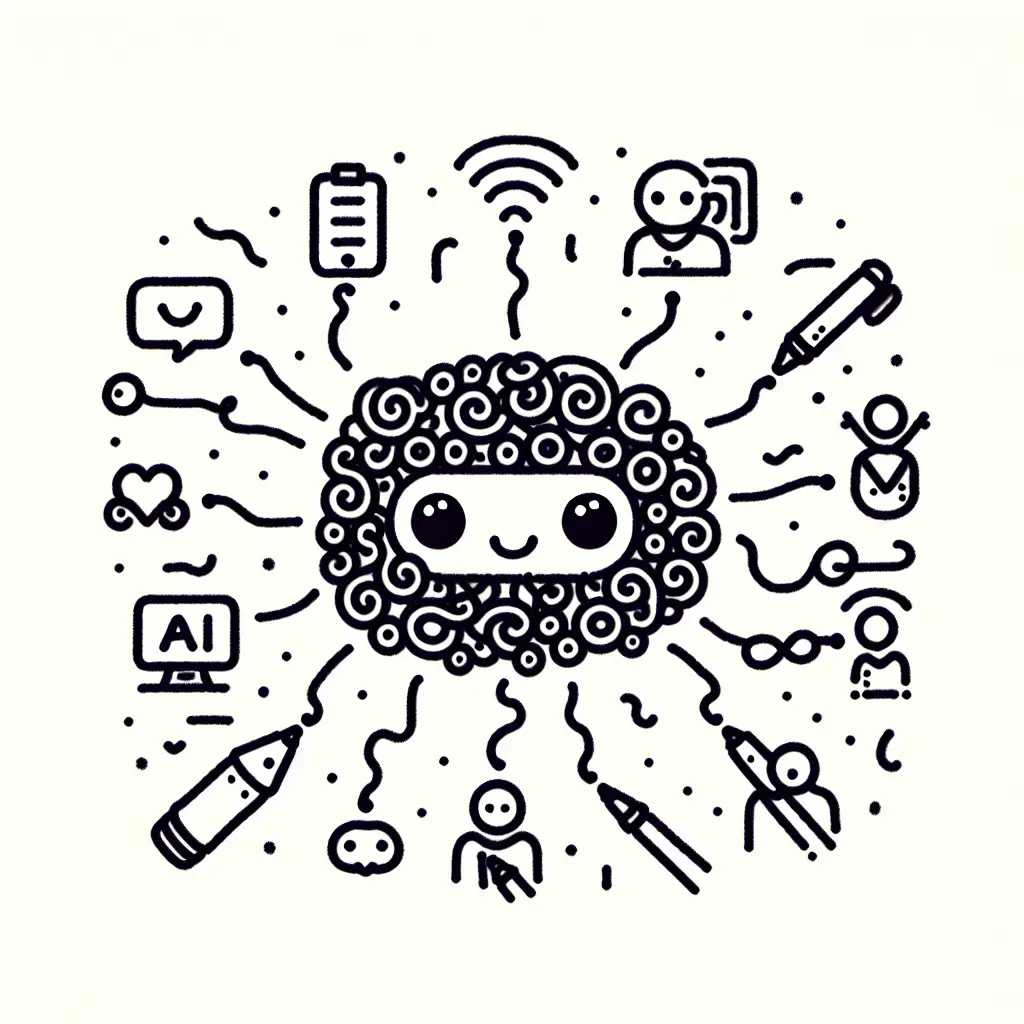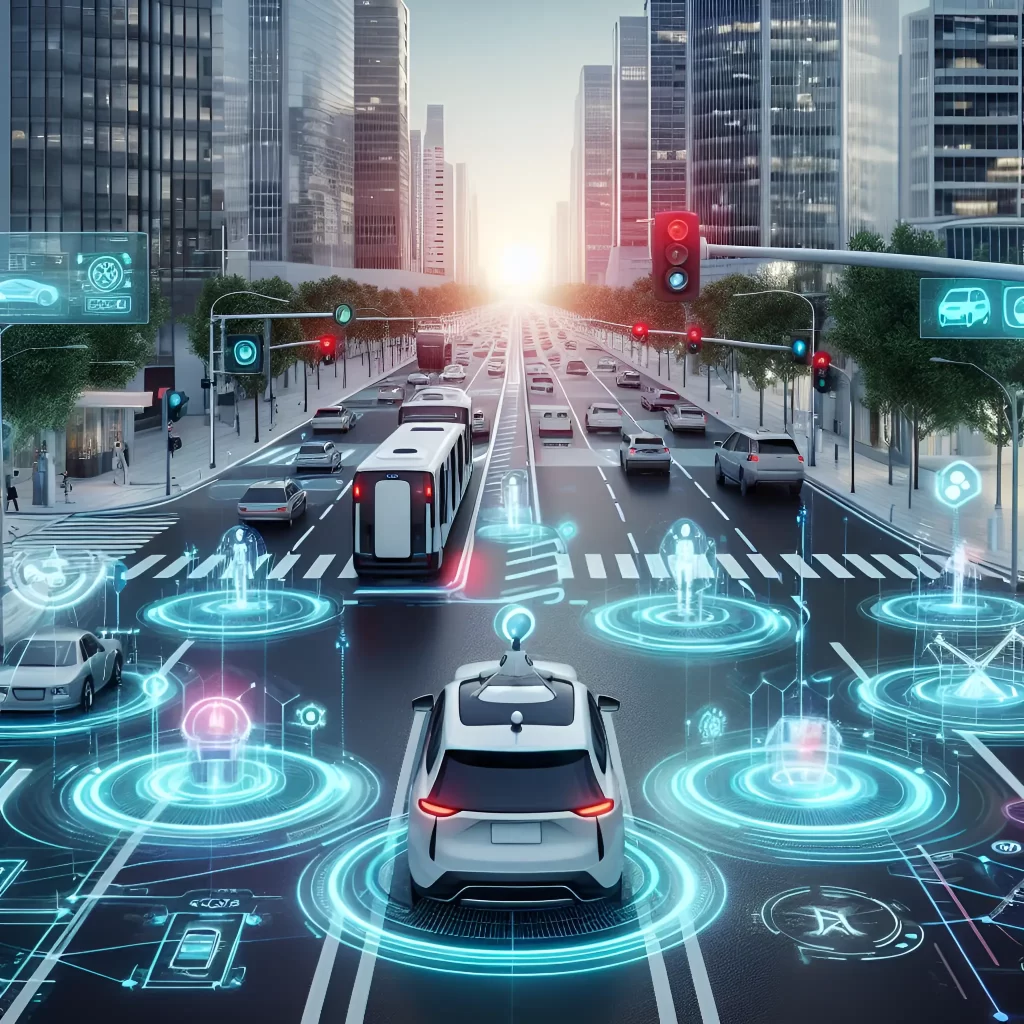Introduction
In today’s rapidly evolving marketplace, understanding how AI is changing business is essential for both large enterprises and small startups. AI, or Artificial Intelligence, is becoming a core component of business strategy, fundamentally transforming operations and driving innovation. From AI marketing tools to AI for small businesses, the applications of artificial intelligence are revolutionizing how companies operate and compete.

The Transformation of Business Operations Through AI
Business operations encompass the routine activities within a company that maintain and expand its viability. AI integrates into these functions to enhance efficiency and productivity.
Increased Efficiency
AI automates routine tasks, optimizing workflows and allowing employees to focus on more complex problems. For example, AI algorithms can analyze data more quickly and accurately than humans in many cases, leading to faster decision-making processes.
Cost Reduction
AI reduces operational costs through automation and predictive maintenance, minimizing the need for human intervention in repetitive tasks and decreasing the likelihood of errors.
Data-Driven Decision Making
Enhanced data analytics and predictive modeling are allowing businesses to make informed decisions. AI systems can interpret large volumes of data, identify trends, and provide insights that guide strategic planning. Understanding how AI is changing business operations reveals significant improvements in efficiency and cost management. For small businesses, AI provides accessible tools that streamline operations and support data-driven decisions. Additionally, exploring What is AI? A Beginner’s Guide can provide foundational knowledge to better leverage AI in your operations.
AI Marketing Tools
AI marketing tools are designed to enhance a business’s marketing strategies by providing deep insights and automating marketing processes.
Customer Segmentation
AI helps businesses identify and target specific customer groups by analyzing patterns in consumer behavior data. This precision in targeting increases marketing effectiveness.
Personalization
Through AI, marketing messages can be tailored to individual preferences, resulting in more engaging and relevant communication with customers.
Predictive Analytics
AI is also crucial in forecasting market trends and consumer behavior, allowing companies to stay ahead of the competition.
Tools like HubSpot, Salesforce Einstein, and Marketo are revolutionizing how businesses engage with their customers. AI-driven marketing campaigns from companies like Amazon have shown measurable outcomes such as increased ROI and higher engagement rates. By leveraging AI marketing tools, companies can achieve more personalized and effective marketing campaigns, demonstrating how AI is changing business.
AI for Small Businesses
AI technologies are increasingly accessible for small enterprises, offering specific solutions that cater to their unique needs.
CRM Systems
Automated customer relationship management systems help small businesses manage interactions with potential clients efficiently.
Inventory Management
AI-driven stock control and demand forecasting help in maintaining optimal inventory levels, which is crucial for small business stability.
Financial Planning Tools
AI assists in budgeting and financial analysis, providing small businesses with the data needed to make sound financial decisions.
Advantages
- Scalability: AI tools that can grow with the business.
- Affordability: Cost-effective solutions that align with limited budgets.
Challenges
- Implementation Costs: The initial investment and ongoing maintenance.
- Skill Gaps: The need for training or hiring knowledgeable staff.
AI for small businesses offers scalable and affordable solutions that can significantly enhance operational efficiency. While how AI is changing business presents numerous opportunities, small businesses must navigate challenges such as implementation costs and skill gaps. Additionally, examining the Best Automation Tools for Small Businesses can help in selecting the right tools to overcome these challenges.
AI Chatbots for Customer Support
AI chatbots are transforming customer service by providing efficient and personalized interactions.
24/7 Support
AI chatbots provide assistance outside of regular business hours, ensuring customers always have access to support.
Personalized Interactions
AI tools tailor responses based on customer data, offering a more personalized service experience.
Scalability
Being able to handle multiple inquiries simultaneously, AI chatbots significantly increase customer support efficiency.
Industry Applications
- E-commerce: Assisting with product inquiries and order tracking.
- Healthcare: Scheduling appointments and answering common questions.
Effective implementations like Zendesk Chat, Drift, and Intercom are examples of how AI chatbots for customer support enable businesses to offer seamless and personalized service around the clock. Integrating AI chatbots for customer support is a key example of how AI is changing business by enhancing customer satisfaction and operational efficiency. For those interested in optimizing their chatbot solutions, the Best AI Chatbot Software for Small Businesses provides comprehensive options tailored to various needs.
AI Content Creation Tools
AI tools for content generation and management are revolutionizing the way businesses create and disseminate information.
Automated Writing
Tools such as Jasper, Copy.ai, and Writesonic generate articles, blog posts, and reports, reducing the time required to produce content.
Content Curation
AI aids in selecting and organizing relevant content to match the business’s strategic objectives.
SEO Optimization
AI-driven keyword analysis enhances content visibility, ensuring it reaches the target audience effectively.
Impact on Content Marketing Strategies
- Efficiency: AI reduces the time and effort required to produce content.
- Consistency: Maintains a steady flow of content output.
- Quality: Ensures content meets standards and relevance.
AI content creation tools like Jasper and Copy.ai are transforming how businesses generate and manage their content. The use of AI content creation tools exemplifies how AI is changing business by enabling more efficient and consistent content marketing strategies.
Challenges and Considerations in Implementing AI
While the benefits of AI are substantial, businesses also face certain obstacles when integrating AI technologies.
Technical Complexity
Understanding and managing AI technologies can be challenging, requiring significant expertise.
Cost of Implementation
Financial investment is necessary not just for acquiring AI solutions but also for their maintenance.
Data Privacy Concerns
Ensuring the ethical use of data is critical, with privacy considerations at the forefront of AI deployment.
Ethical Considerations
- Bias in AI Algorithms: It is essential to mitigate any discriminatory outcomes.
- Responsible AI Usage: AI should be used in ways that benefit society and avoid potential harm.
Strategies for Overcoming Challenges
- Investing in Training: Building internal expertise is crucial.
- Choosing the Right Partners: Collaborate with reputable AI vendors for successful implementation.
- Establishing Clear Objectives: Clearly define what the business aims to achieve with AI.
One of the primary challenges in how AI is changing business is navigating the technical complexity and costs associated with implementation. For small businesses, addressing data privacy concerns and ensuring responsible AI usage is crucial for successful AI integration. Additionally, the guide on How to Implement AI in Your Small Business offers a step-by-step approach to overcoming these hurdles.
Future Trends: The Evolving Role of AI in Business
AI is continuously evolving, promising further integration and transformation of business practices.
Advanced Automation
Businesses will see AI handling more complex processes beyond routine tasks.
AI-Driven Innovation
The creation of new products and services through AI capabilities will push the boundaries of innovation.
Enhanced Personalization
AI will enable deeper customization of customer experiences, enhancing satisfaction and engagement.
Emerging AI Technologies
- Natural Language Processing (NLP): Improved communication and understanding.
- Machine Learning Enhancements: More accurate predictive analytics.
- AI in Supply Chain Management: Optimizing logistics and inventory.
Long-Term Implications Across Industries
- Healthcare: Personalized medicine and predictive diagnostics.
- Finance: Enhanced fraud detection and automated trading.
- Manufacturing: Smart factories and predictive maintenance.
Looking ahead, how AI is changing business will continue to evolve with advancements in machine learning and natural language processing. Emerging AI technologies promise to further integrate AI for small businesses, enabling even greater innovation and efficiency across industries.
Conclusion
In conclusion, understanding how AI is changing business is vital for companies aiming to thrive in today’s digital age. From operations to marketing, customer support, and content creation, AI is at the forefront of driving business growth and maintaining competitiveness. By leveraging AI marketing tools, AI chatbots for customer support, and other AI content creation tools, businesses can achieve sustained growth and maintain a competitive edge.


